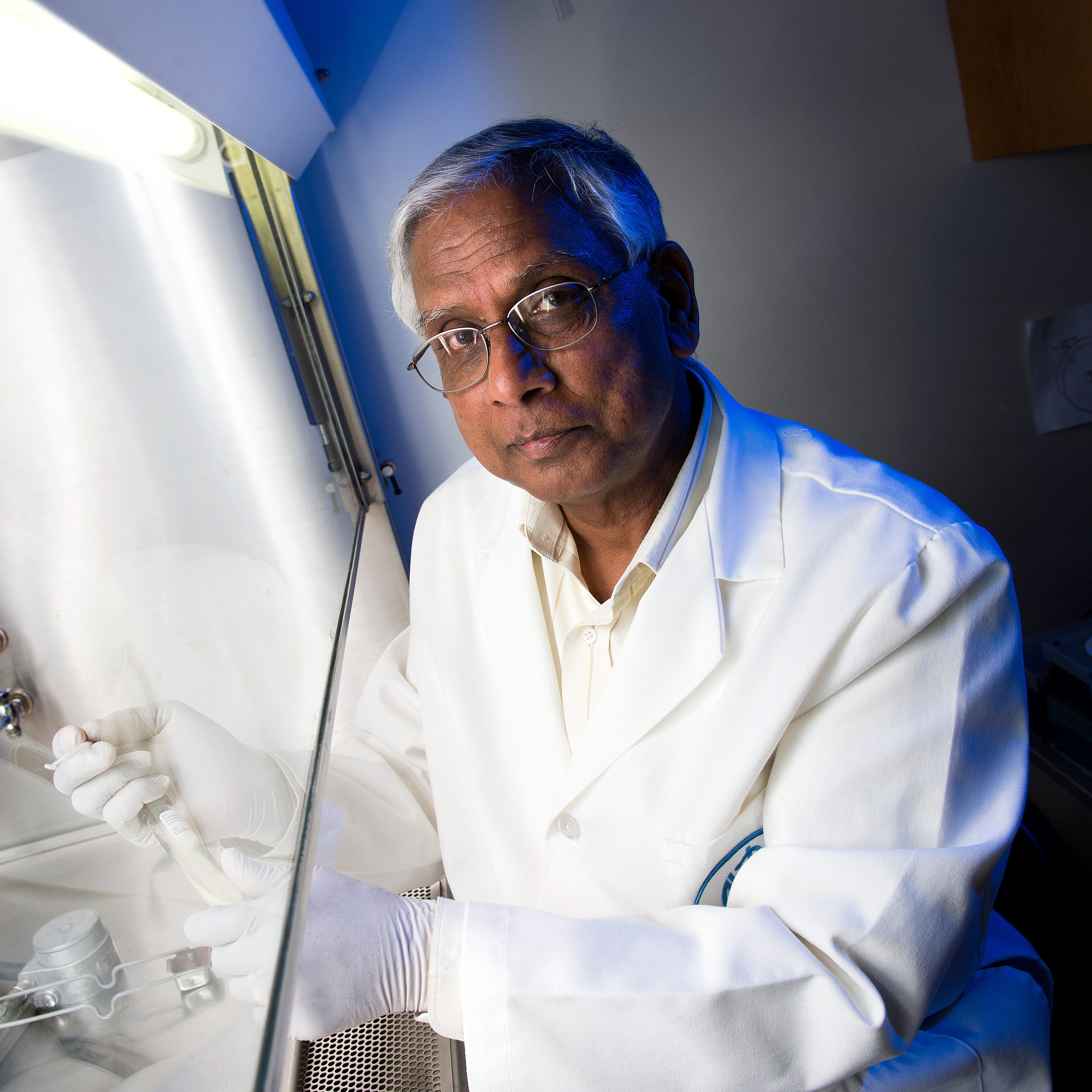
Professor, Department of Biomedical Sciences and Pathobiology
Program Focus
- Targeted drug delivery for intracellular pathogens - In the last few decades, the emergence of drug resistant strains of Salmonella sp., Brucella sp., Mycobacterium sp., etc. representing intracellular bacterial pathogens is manifesting into a global health problem thereby raising new pharmaceutical challenges and necessitating the development of an efficient and cost effective novel agent. My laboratory is aiming to achieve site specific targeted drug delivery with increased bioavailability of antimicrobials/drugs using nanoparticles as carriers. Our ultimate goal is to design and develop novel nanoparticle based drugs by incorporating biological, engineering and chemical manufacturing principles for therapeutic application of chronic infectious diseases i.e., tuberculosis, brucellosis and salmonellosis. In addition, I also believe that development of nanoparticle based targeted drug delivery system may provide new therapeutic opportunities for the use of vast array of unstable, toxic, and insoluble antimicrobials (sitting on the shelves of drug companies), with minimum or no deleterious side effects.
- Development of vaccines against bioterrorism agents - My main interests are in understanding the host-parasite relationships, pathogenesis, virulence and their applications in vaccine development. At present my research focuses mainly on Brucella. My research effort is geared towards generation and testing of recombinant B. abortus RB51 vaccines against Anthrax, Tuberculosis, Paratuberculosis, Rift Valley Fever and Neosporosis.Microarray development to study host/pathogen interactions.
- Bacteriophage based remediation of food borne Salmonella in poultry - In the last six years, I initiated research to investigate the potential of phages as remedial agents in poultry. The entire chromosomal sequence (86.165kb) of one broad host range Salmonella species-specific phage called Felix 01has been determined. This was done to explore using such long-term surviving phages as therapeutic and or bioremedial agent against drug resistant Salmonella. Exploring bioremediation processes to treat regulated medical waste.
- Enterotoxigenic E. coli - My early efforts were focused on the isolation, purification and characterization of Heat-Stable Enterotoxin (STa). We were the first to show that bovine enterotoxigenic E.coli (ETEC) produced an 18 amino acid peptide. We also demonstrated by amino acid sequencing that bovine STa was similar, if not identical, to an 18-19 amino-acid peptide produced by human ETEC.
- Molecular Immunology - Characterization and quantitation of cytokine mRNA expression in lymphocytes from mice.
- Vaccines & aging - effect of aging on immune response
Selected Publications
Seleem MN, Boyle SM, Sriranganathan N. Brucella: A pathogen without classic virulence genes. Vet Microbiol. 2007 Nov 29.
High KP, Prasad R, Marion CR, Schurig GG, Boyle SM, Sriranganathan N. Outcome and immune responses after Brucella abortus infection in young adult and aged mice.Biogerontology. 2007 Oct;8(5):583-93.
Ramamoorthy S, Sanakkayala N, Vemulapalli R, Jain N, Lindsay DS, Schurig GS, Boyle SM, Sriranganathan N. Prevention of vertical transmission of Neospora caninum in C57BL/6 mice vaccinated with Brucella abortus strain RB51 expressing N. caninum protective antigens. Int J Parasitol. 2007 Nov;37(13):1531-8
Contreras-Rodriguez A, Seleem MN, Schurig GG, Sriranganathan N, Boyle SM, Lopez-Merino A. Cloning, expression and characterization of immunogenic aminopeptidase N from Brucella melitensis. FEMS Immunol Med Microbiol. 2006 Nov;48(2):252-6.
Seleem MN, Ali M, Boyle SM, Mukhopadhyay B, Witonsky SG, Schurig GG, Sriranganathan N. Establishment of a gene expression system in Ochrobactrum anthropi. Appl Environ Microbiol. 2006 Oct;72(10):6833-6.


